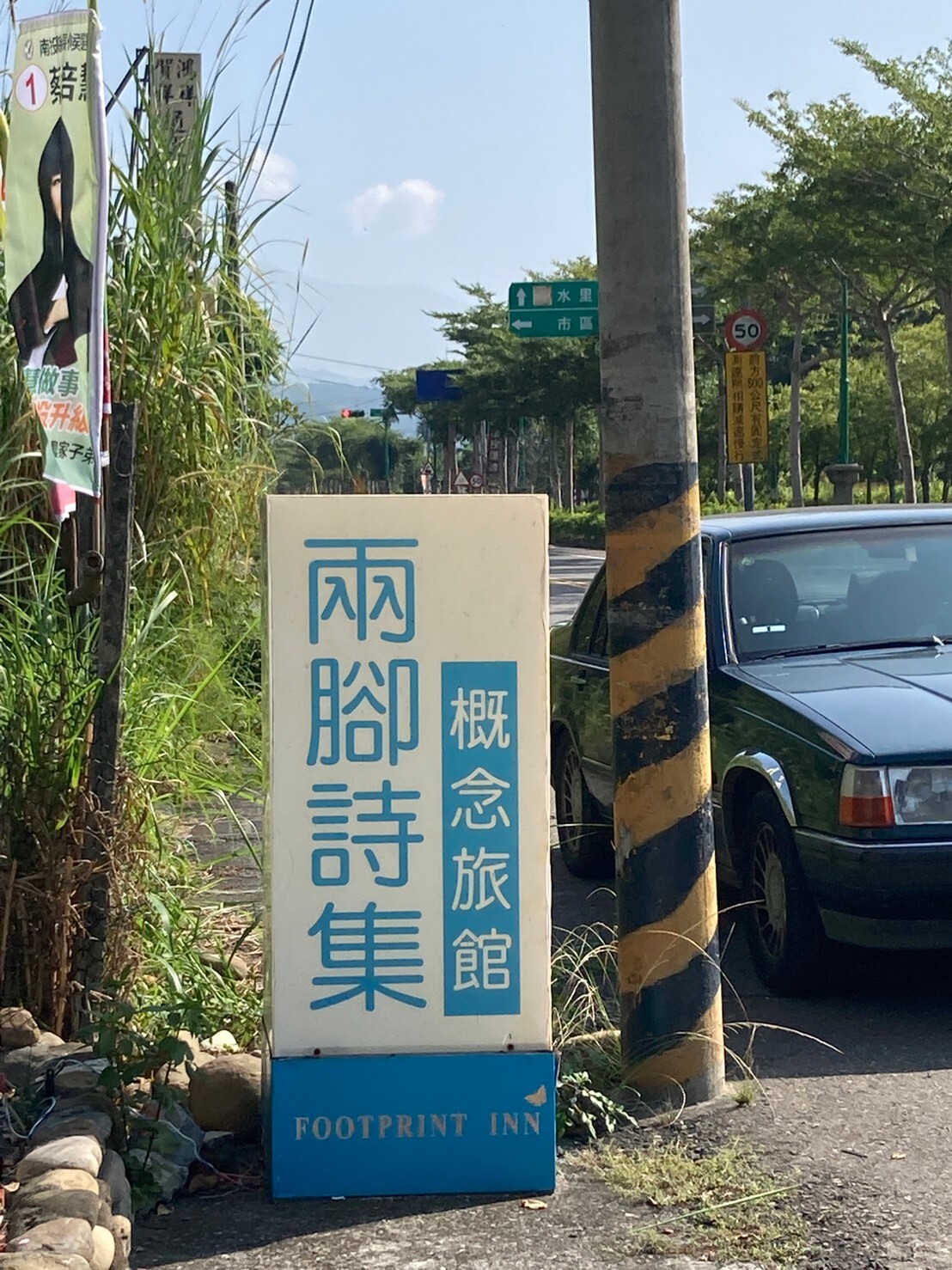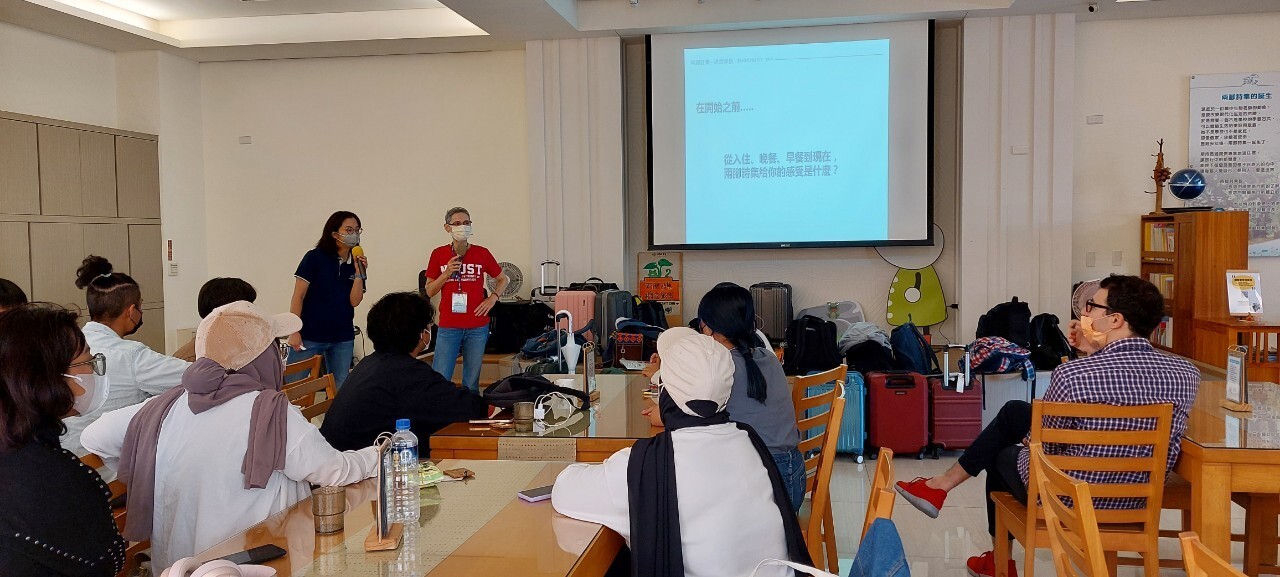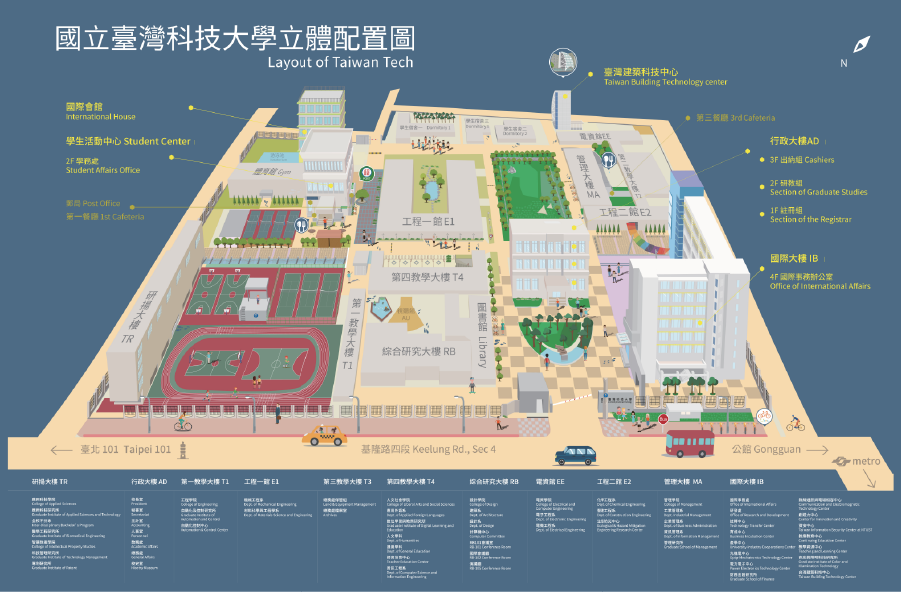First Taiwan Tech Sustainability Study Tour, 10-12 Nov 2022!
“What is sustainability in business?” First Taiwan Tech Sustainability Study Tour, 10 – 12 November 2022
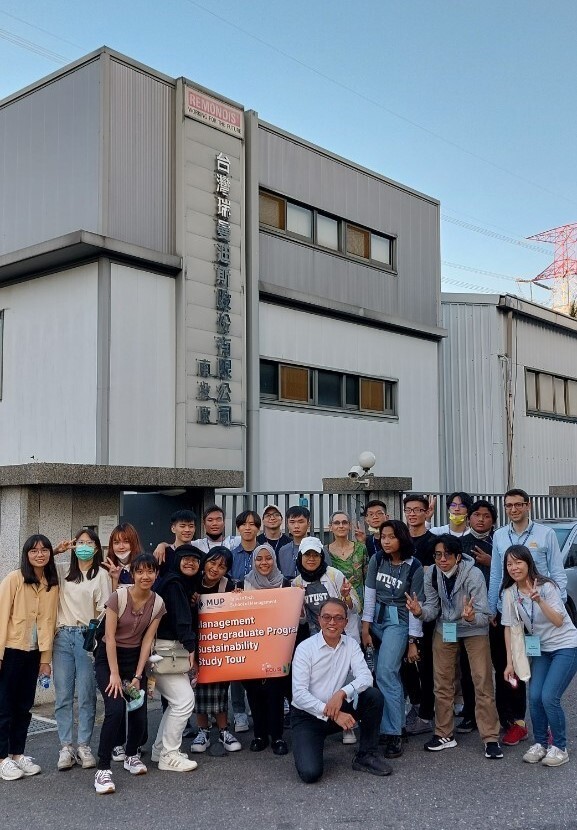 “What is sustainability in business?” – That was the question that a group of local and international Taiwan Tech students went to explore on a two-and-a half-day study tour through Central Taiwan. It was the first time that the Taiwan Tech School of Management, in cooperation with the Office of International Affairs, offered a sustainability-themed tour to students of the Management Undergraduate Program.
“What is sustainability in business?” – That was the question that a group of local and international Taiwan Tech students went to explore on a two-and-a half-day study tour through Central Taiwan. It was the first time that the Taiwan Tech School of Management, in cooperation with the Office of International Affairs, offered a sustainability-themed tour to students of the Management Undergraduate Program.
With “sustainability” having become a global buzzword and cover term for a wide range of ideas and practices, finding an answer to this question was by no means easy. The educational idea of the tour, designed by Karl Akbari, Assistant Professor of Marketing, was to present different definitions of sustainability, and challenge students to critically discuss these notions throughout the tour. The itinerary took the group to Central and Western Taiwan, with visits to international and domestic companies that play a leading role in Taiwan’s recycling and regenerative energy sector, as well as restaurants and hotels in the “green” service industry. The organization of the tour also followed principles of sustainable travelling, that is staying in environmentally friendly or family-run small hotels, and having meals in Zero-Waste restaurants.The trip ended in the old port town of Lugang, famed for its historical buildings and temples, where students had the chance to explore Taiwanese culture on their own.
The tour was led and supervised by two international faculty members of the School of Management, Assistant Professor Karl Akbari and Dr. Stefanie Eschenlohr. 18 students from Taiwan, Indonesia, and Mexico, were selected to join the tour, which was completely held in English as part of Taiwan Tech's EMI (English Medium of Instruction) program. If no English speaker was available, on-site translation was offered for the international participants.
The tour departed from the Taiwan tech campus on Thursday morning, heading to the first stop, the Ørsted Offshore Wind Farms Operations and Maintenance Hub, located at Taichung port. The Danish wind power giant, which is one of the main players in Taiwan’s regenerative energy transformation, has been ranked as world’s most sustainable renewable energy company since 2019 (Corporate Knights Global 100 Index). The group was welcomed by Peggy Liao, the Lead Local Stakeholder Manager, who gave detailed insights into the current state of their offshore projects, and how the company dealt with concerns from different social and environmental groups – an important aspect of “sustainability” which students were particularly interested in.
The second visit was combined with a lunch break at Huamei Surplus Food Association, a community kitchen in Taichung City. While the students were having a vegetarian lunch that was prepared from “rescued food”, Ms Liao Chia-lun, the founder of Huamei Surplus, introduced them to the food waste problem in Taiwan and brought up her solutions. “Eat reasonably, eat seasonally, eat locally, it is as simple as that”, she said. She then took the group to the nearby wet market to collect the leftover food of the day that would be turned into delicious meals by volunteer cooks.
|
|
 Students listening to the presentation at Ørsted Students listening to the presentation at Ørsted |
 Lunch at the Huamei Surplus Asscocation in Taichung Lunch at the Huamei Surplus Asscocation in Taichung |
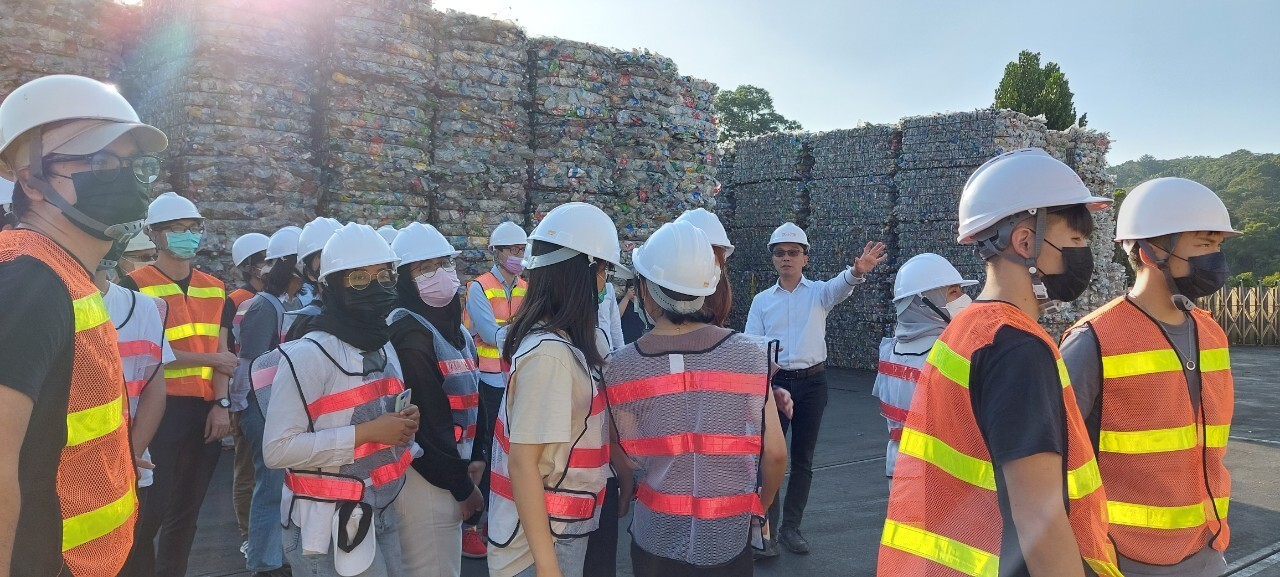 About an hour’s drive south of Taichung, in Nantou County, the German company REMONDIS operates its Nantou Plastic Recycling Plant where plastic trash from all over Taiwan is recycled and turned into plastic flakes and chips which is valuable raw materials for a wide range of businesses in Taiwan, e.g. Taiwan’s high-tech textile companies. Jim Tai, REMONDIS General Manager in Taiwan, took time to guide the group through the plant and patiently answered all questions on technical issues and also gave insights into business development in the recycling industry. REMONDIS is about to open a new plant state-of the art recycling plant in Changhua County next year.
About an hour’s drive south of Taichung, in Nantou County, the German company REMONDIS operates its Nantou Plastic Recycling Plant where plastic trash from all over Taiwan is recycled and turned into plastic flakes and chips which is valuable raw materials for a wide range of businesses in Taiwan, e.g. Taiwan’s high-tech textile companies. Jim Tai, REMONDIS General Manager in Taiwan, took time to guide the group through the plant and patiently answered all questions on technical issues and also gave insights into business development in the recycling industry. REMONDIS is about to open a new plant state-of the art recycling plant in Changhua County next year.
The first day ended with dinner at the Footprint Inn in Jiji, Nantou, one of the only three certified “green hotels” in Taiwan. Everyone was surprised by the high level of comfort, and the briefing on the next morning offered a chance to ask the hotel managers what it means to run an environmentally friendly hotel. “We don’t want to force our guests into a certain lifestyle, we don’t preach, we just suggest another way of traveling” explained by Ms Hsiao-wen Kuo, the hotel’s customer service manager in her presentation. There was no time left to explore Jiji any further, but on the way to the next visit, the bus stopped the Jiji Weir at the Jhuo river to let students catch a view of the largest dam in Taiwan.
Lunch on the second day was again in a Zero-Waste restaurant: Dish of Tomorrow, in Taichung’s West district, a thriving social enterprise founded by Hady Yang in 2016. Using a “Pay-as You -Want”-concept, this little restaurant which is deeply rooted in the local community, is now preparing to set up a “rescued food” store and an educational space for “re-cycle, re-use, re-value” workshops. Ms Yang is also proud of her “work for food and accommodation” scheme for homeless people who help to run Dish of Tomorrow. “With every bite of the food at our place, you are making a contribution, to people and the environment”, were her words of farewell to the group.
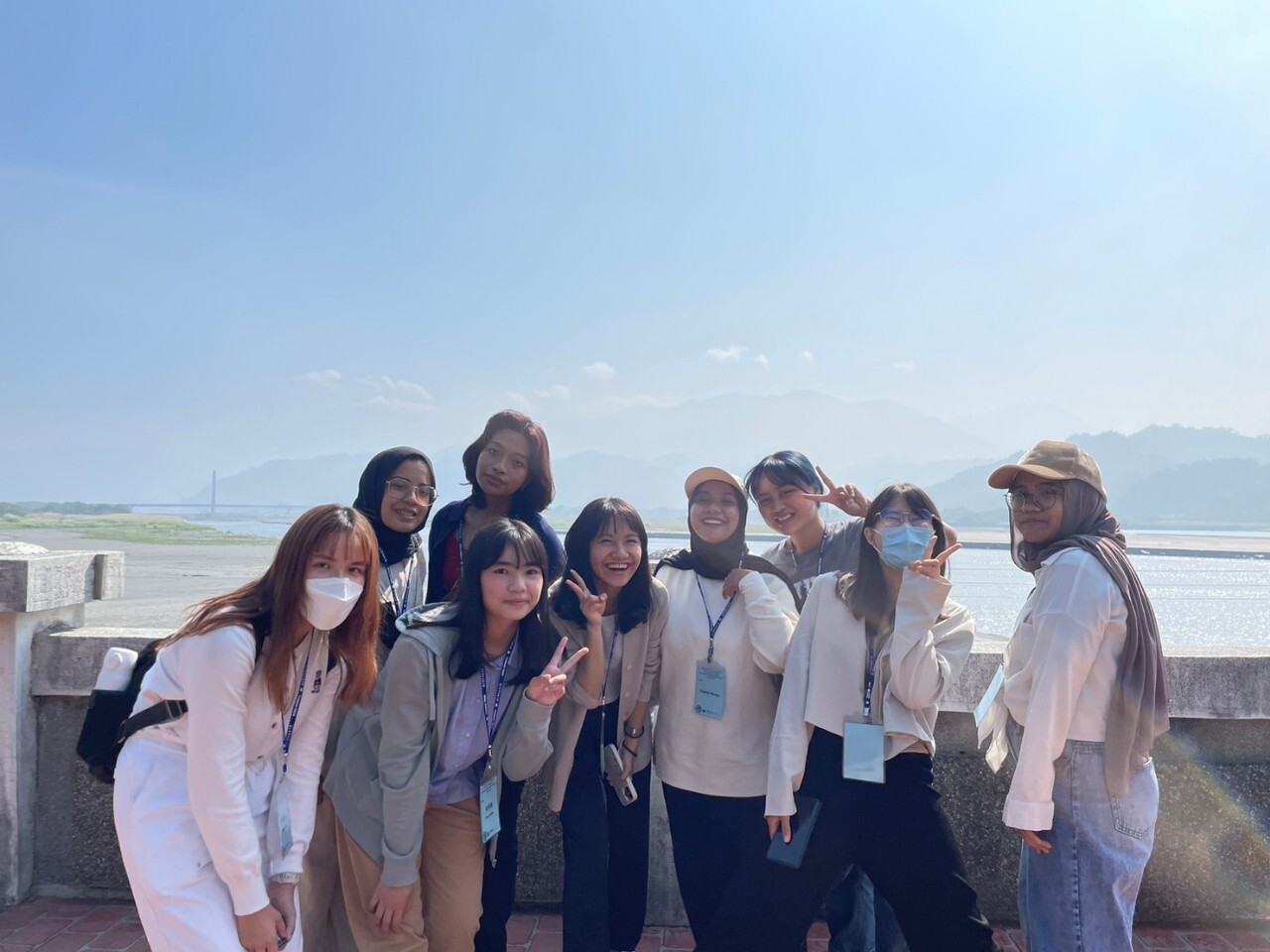 At the Jiji Weir in Jiji, Nantou |
 Lunch at Dish of Tomorrow Zero Waste Restaurant |
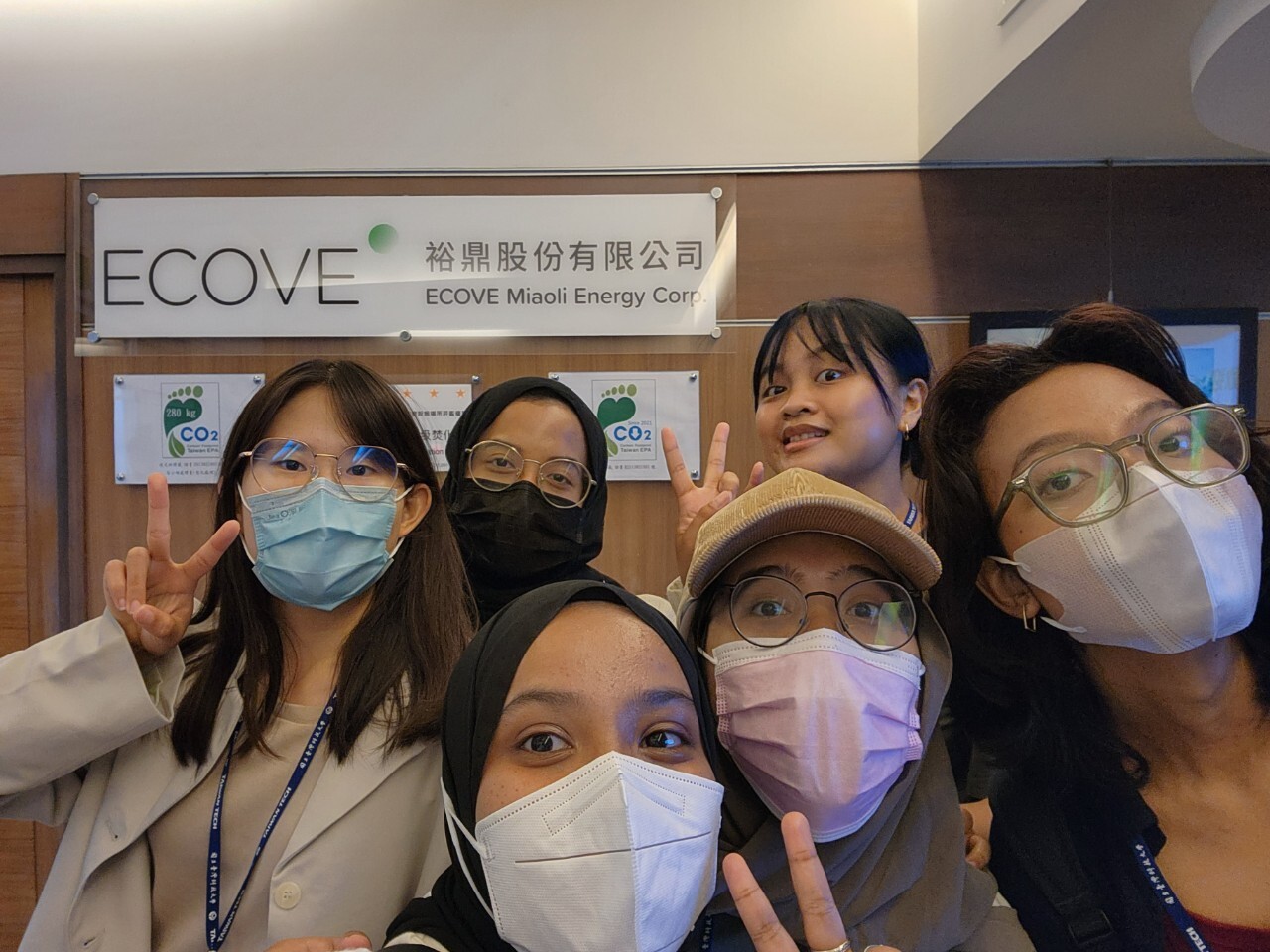 The final visit of the program was ECOVE Waste-to-Energy plant, located in Jhunan, Miaoli. ECOVE is one of the leading Energy from Waste (EfW) service providers in Taiwan, currently operating nine EfW plants in Taiwan and Macao. The plant manager, Mr Yu-Hsuan Peng, hosted the visit in person. After a short introductory video, followed by a Q&A sessions, he led the group through the state-of-the-art incinerator which handles municipal waste from Miaoli and surrounding counties. The generated electricity is sold to Tai Power, Taiwan’s state-owned electricity company. The plant which had met fierce opposition by residents when it was planned, features advanced noise and pollution control systems, and ECOVE’s engagement in environmental education and ecological protection has led to a wider acceptance by the population.
The final visit of the program was ECOVE Waste-to-Energy plant, located in Jhunan, Miaoli. ECOVE is one of the leading Energy from Waste (EfW) service providers in Taiwan, currently operating nine EfW plants in Taiwan and Macao. The plant manager, Mr Yu-Hsuan Peng, hosted the visit in person. After a short introductory video, followed by a Q&A sessions, he led the group through the state-of-the-art incinerator which handles municipal waste from Miaoli and surrounding counties. The generated electricity is sold to Tai Power, Taiwan’s state-owned electricity company. The plant which had met fierce opposition by residents when it was planned, features advanced noise and pollution control systems, and ECOVE’s engagement in environmental education and ecological protection has led to a wider acceptance by the population.
The densely packed program left all participants a bit exhausted on Friday evening, but the energy was restored at the pretty old town of Lugang where students were free to roam about and sample the famed snacks of Lugang’s Old Street.
Itinerary.
More pictures
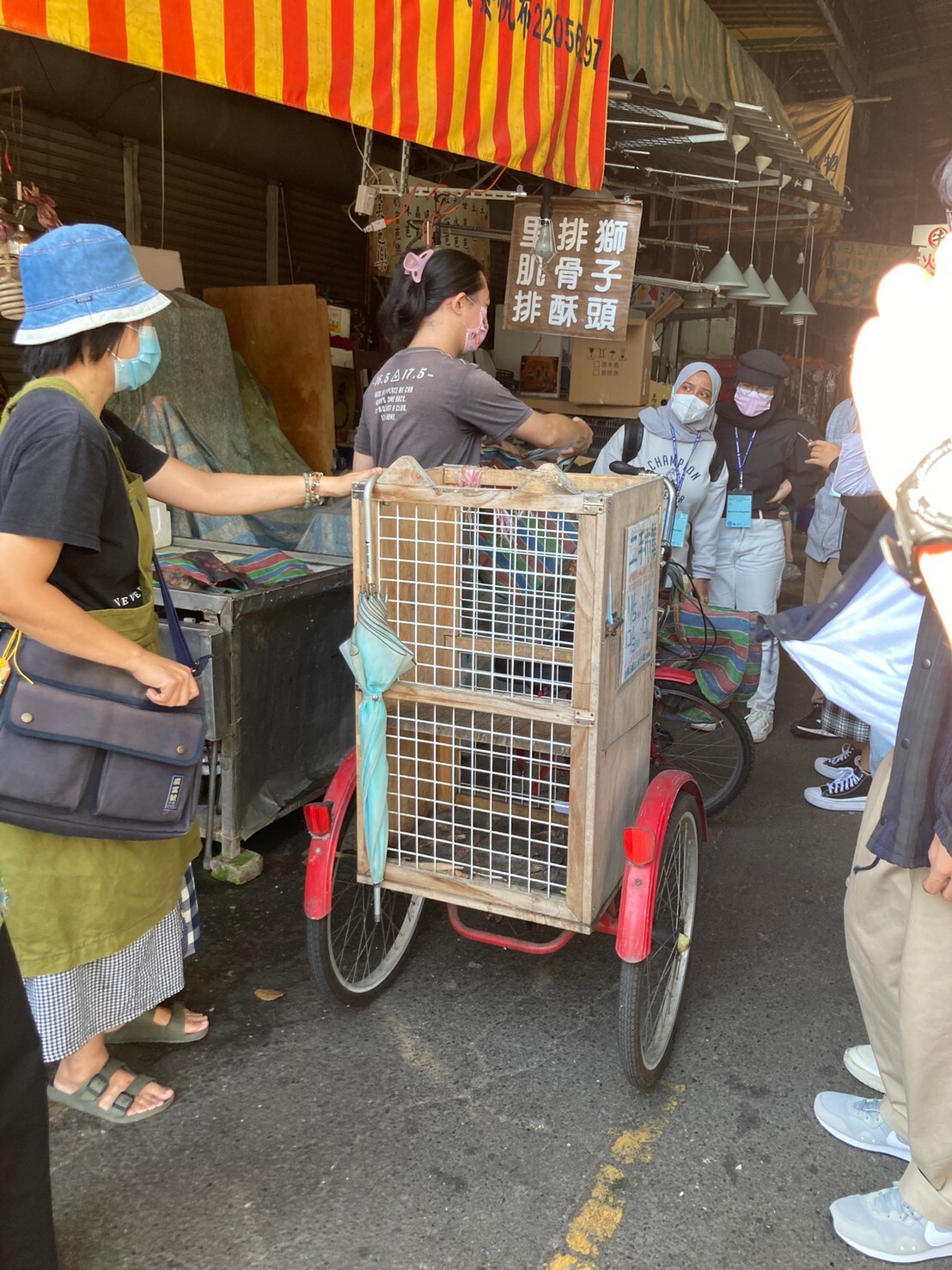 Food Collection by Huamei Surplus Food Association at wet-market in Taichung |
|
Entrance to Footprint Inn, Green Hotel in Jiji, Nantou |
|
Presentation at Footprinn Inn on Sustainability on the Tourism Industry |
Programm Overview
10.11 Ørsted Taiwan Offshore Wind Farms Operations and Maintenance Hub
10.11. Huamei Surplus Zero Waste , Community kitchen + Visit to Food Market
10.11 REMONDIS Plastic Recycling Plant
10.11. - 11.11. Accommodation in Footprint Inn, Jiji Nantou
11.11. Introduction to Footprint Inn, "A certified Green Hotel”
11.11. Dish of Tomorrow , Social Enterprise
11.11 ECOVE Energy from Waste Plant
11. - 12.11. Accomodation in Lugang, Changhua,
12.11 Exploring Lugang

